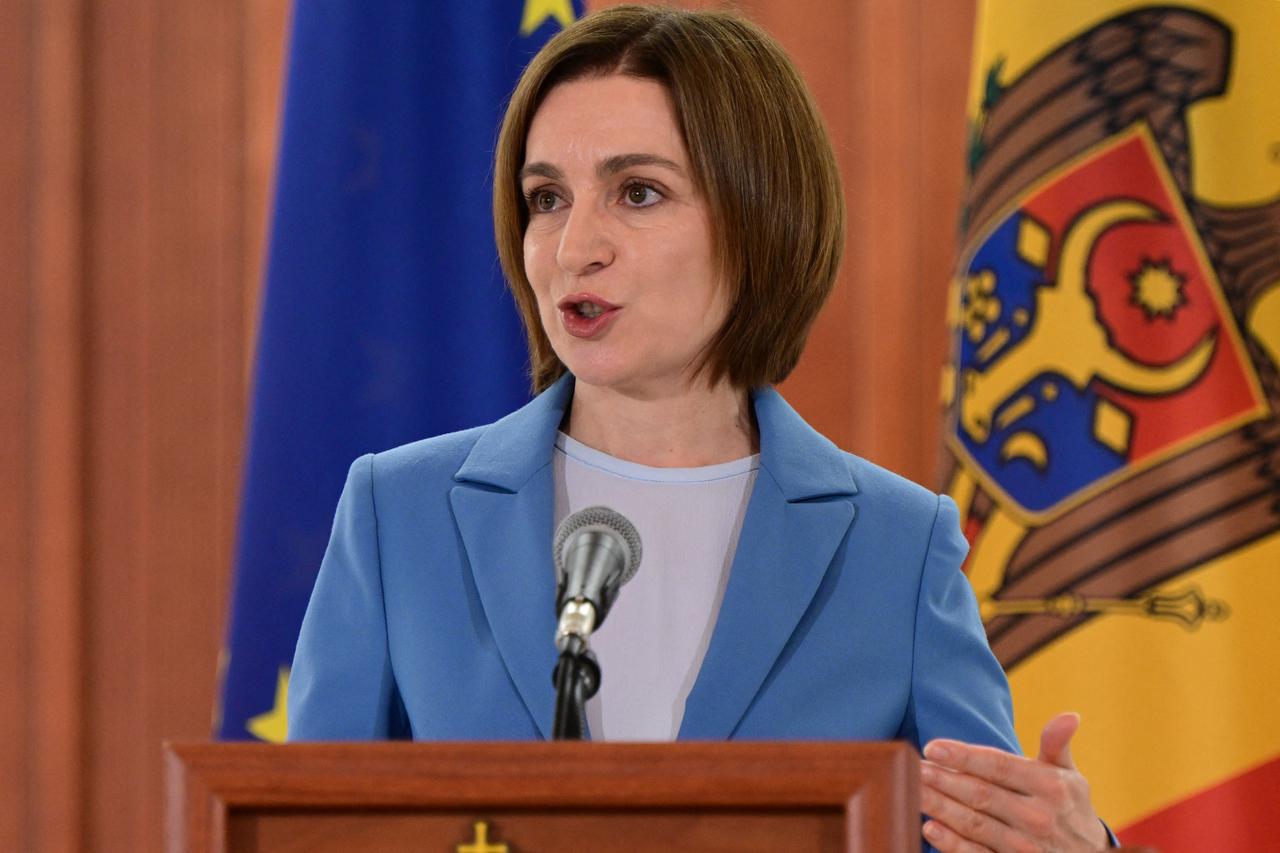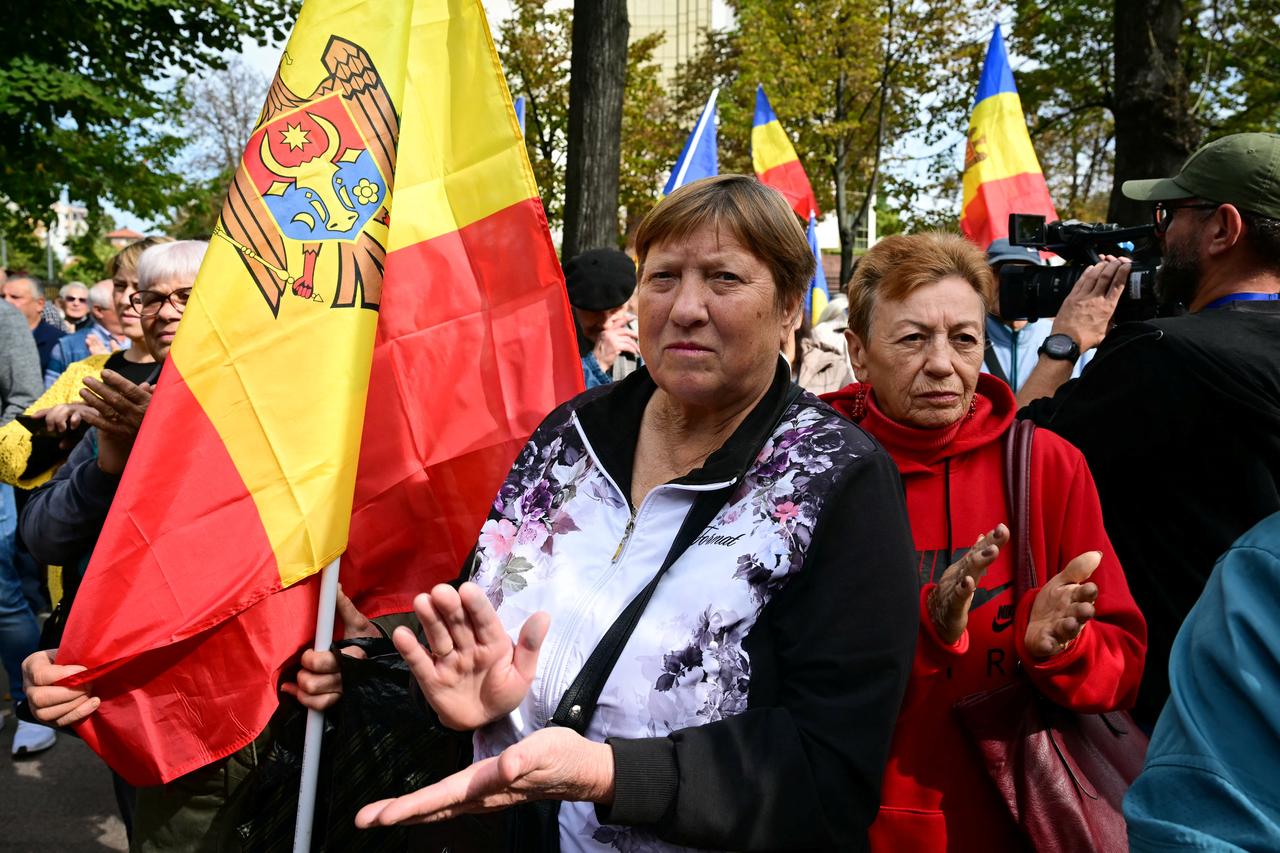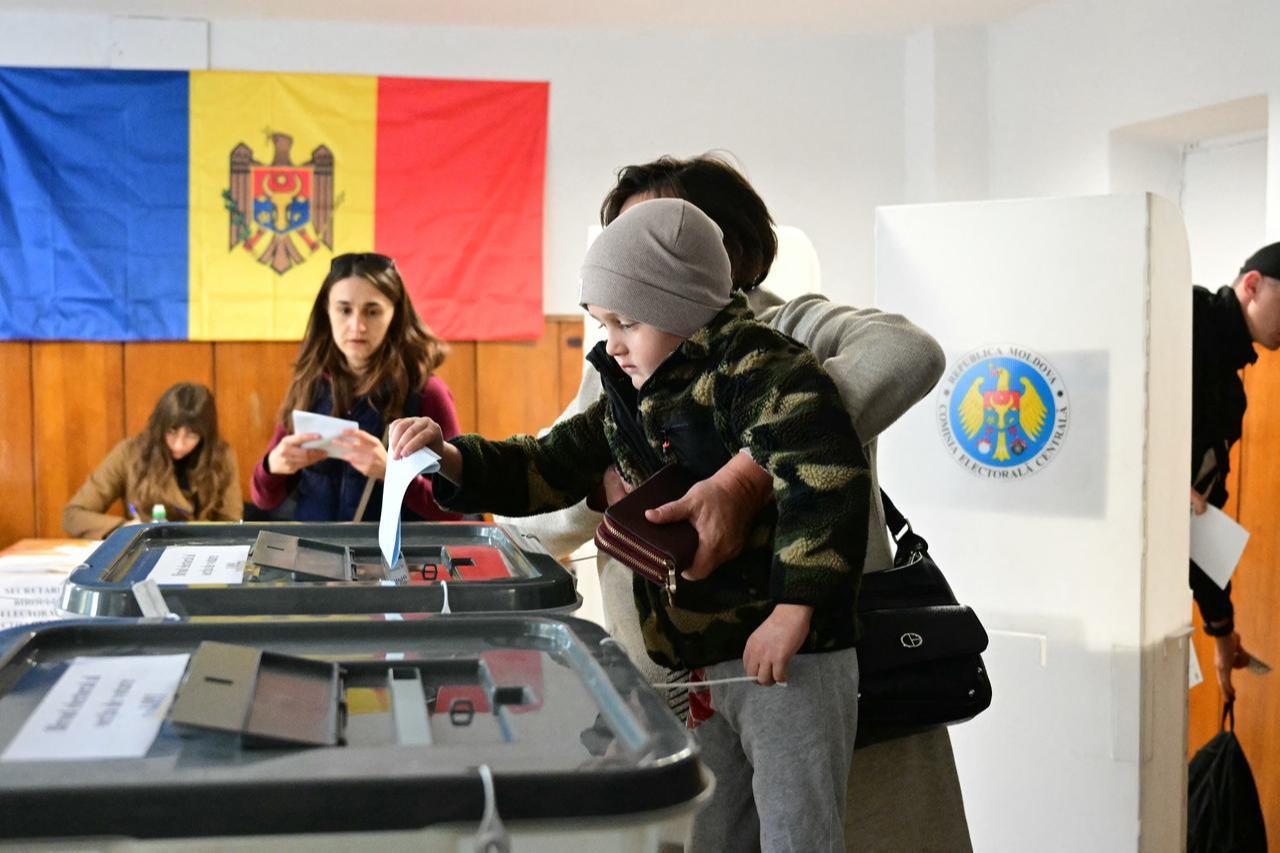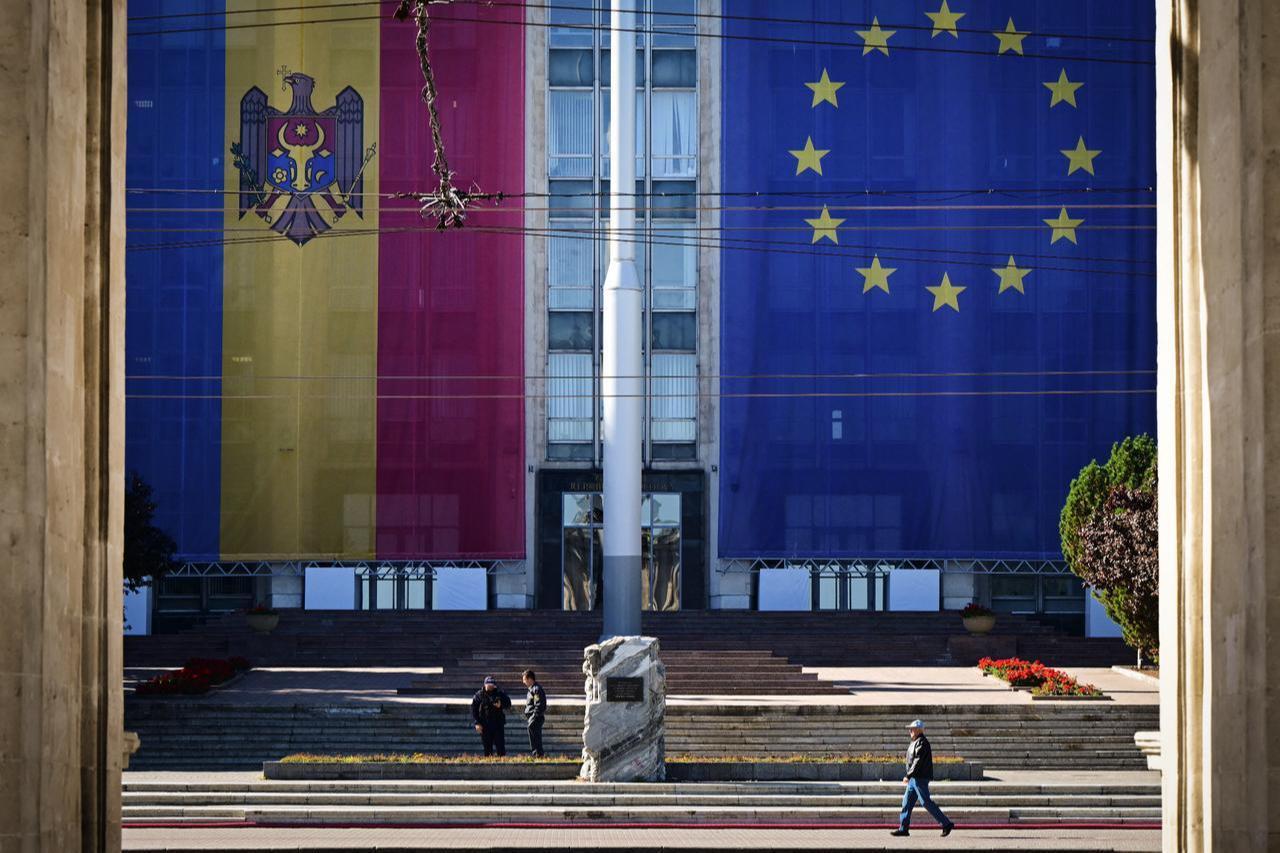
Moldova's governing party declared victory Monday in parliamentary elections that officials say will keep the former Soviet republic on its westward trajectory, despite what authorities described as an extensive Russian campaign to influence the outcome.
The Party of Action and Solidarity captured 50.20 percent of the vote in Sunday's election, according to final results, defeating the pro-Russian Patriotic Bloc, which received 24.18 percent. The outcome positions the ruling party to continue steering the nation of 2.4 million toward European Union membership, a goal that gained urgency following Russia's 2022 invasion of neighboring Ukraine.
"Yesterday's vote is a strong mandate for the process of Moldova's accession to the EU," President Maia Sandu, who leads the Party of Action and Solidarity, told reporters Monday.
The election unfolded against a backdrop of allegations that Moscow deployed vast resources to sway voters through disinformation campaigns, vote-buying schemes and efforts to incite unrest. European Union officials characterized the interference as unprecedented in scale.
"Russia threw everything dirty it had into the fight.... It's not only PAS that won the elections, the people won," said Igor Grosu, the party's leader.
Russia rejected the accusations. A foreign ministry spokeswoman said Monday that Moldovan authorities "cynically accused Russia, not the European Union, of interfering in Moldova's political processes, fuelling insinuations about a non-existent 'Russian threat'."

The ruling party's support has weakened since the last parliamentary elections four years ago. It is projected to hold 55 seats in the 101-member parliament, down from 63, reflecting growing voter discontent in one of Europe's poorest nations.
Moldova has long stood divided between those favoring closer ties with Brussels and those seeking to maintain historical connections with Moscow. The country borders Ukraine to the north and east and is home to Transnistria, a pro-Russia breakaway region where local authorities claimed voting was restricted.
Turnout reached 52.21 percent, roughly matching participation levels from 2021.
Paula Cardoso, who led the election observer mission from the Organization for Security and Cooperation in Europe, said the vote "demonstrated a high level of commitment to democracy amid unprecedented hybrid threats coming from Russia."
The government has accused the Kremlin of spending hundreds of millions to interfere in the campaign. In the weeks before the election, prosecutors conducted hundreds of searches in what officials described as investigations into "electoral corruption" and "destabilisation attempts," resulting in dozens of arrests.

Reactions to the results split along familiar lines. Nadir Grinco, 25, who works in organizational communication, said it was "very nice to wake up in a Moldova which chose the right path: peace, development and stability."
But Liuba Peribicovski, a 75-year-old pensioner, called the outcome "negative" and challenged the EU to "prove this meddling" attributed to Russia.
About 200 people gathered briefly outside parliament Monday, chanting "freedom" and "Moldova," responding to a protest call from Igor Dodon, a former president and leader in the pro-Russian opposition. Dodon accused the ruling party of stealing the vote and said complaints had been filed with the election commission.

European leaders praised the results as a victory for democratic values. Ukrainian President Volodymyr Zelensky said "Russia failed to destabilise Moldova even after spending huge, huge resources to undermine it and to corrupt whoever they could."
France, Germany and Poland issued a joint statement declaring that "Moldovan voters have shown once again that they will not allow their future in peace and freedom to be taken away from them... despite unprecedented interference by Russia."
Moldova received EU candidate status in 2022, launching an integration process that Sunday's election will allow to continue, though economic hardship and skepticism about European membership remain significant challenges for the government.